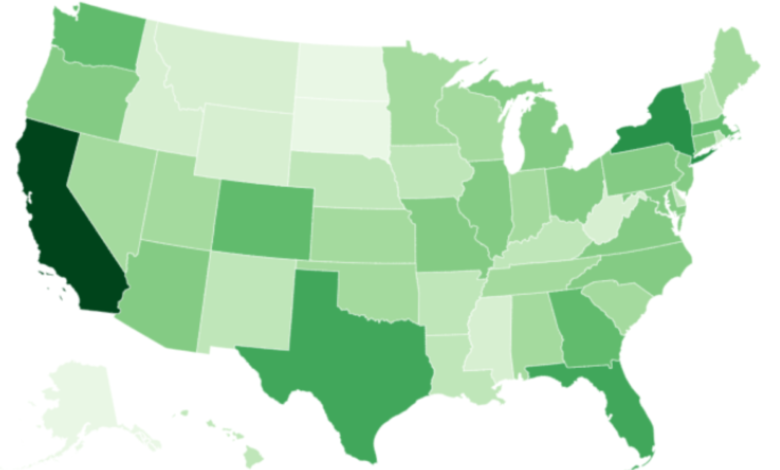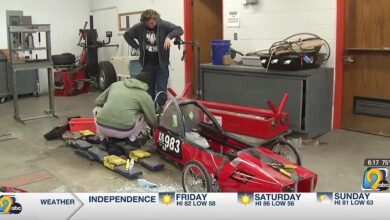Map Shows States With Fewest EV Chargers

The U.S. boasts over 61,000 publicly accessible electric vehicle charging stations, more than doubling since 2020, but there remain distribution disparities between states.
The growth has been driven by significant federal funding from the 2021 Infrastructure Investment and Jobs Act and the 2022 Inflation Reduction Act. These laws aim to bolster EV infrastructure and encourage the adoption of electric vehicles across the country through incentives such as tax credits for EV buyers.
California leads the nation with the highest number of EV charging stations, hosting a quarter of the total. However, the ratio of chargers to EVs in California presents a challenge, with one public charging port for every 29 EVs, according to research by Pew. In contrast, states like Wyoming, North Dakota, and West Virginia have more favorable ratios due to their smaller number of EVs.
Alaska has the least EV charging points in the U.S., but data from the U.S Department of Energy on the number of registered EVs in the state suggests the ratio of EVs to charging ports is less favorable than other places with few charging points.
Urban areas have the highest concentration of charging stations, with 60% of urban residents living within a mile of a charger. In comparison, 41% of suburban residents and only 17% of rural residents have similar proximity. This disparity underscores the ongoing need to expand infrastructure in less densely populated areas.
The survey also reveals that proximity to EV chargers significantly influences public opinion on electric vehicles. Americans living closer to public chargers tend to have a more favorable view of EVs, are more likely to own or consider purchasing an EV, and support phasing out gasoline cars by 2035. Specifically, 49% of those living within a mile of a public charger support this phase-out, compared to 30% of those living more than two miles away.
Frederic J. Brown/AFP via Getty Images
Public sentiment towards EVs varies significantly across different demographic and political groups. Democrats, younger adults, and urban residents are more likely to consider purchasing an EV, while Republicans and rural residents are less enthusiastic.
Despite the rapid growth in charging infrastructure, confidence in the U.S. building the necessary EV infrastructure remains low. Only 17% of Americans are extremely or very confident in this capability, with slightly higher confidence (20%) among those living within a mile of a public charger.
Automakers are increasing production of electric vehicles to meet growing demand. Major car manufacturers, including General Motors and Ford, have announced plans to increase their EV offerings significantly over the next decade. These efforts are expected to drive down the cost of electric vehicles and make them more accessible to a broader range of consumers.
Uncommon Knowledge
Newsweek is committed to challenging conventional wisdom and finding connections in the search for common ground.
Newsweek is committed to challenging conventional wisdom and finding connections in the search for common ground.



